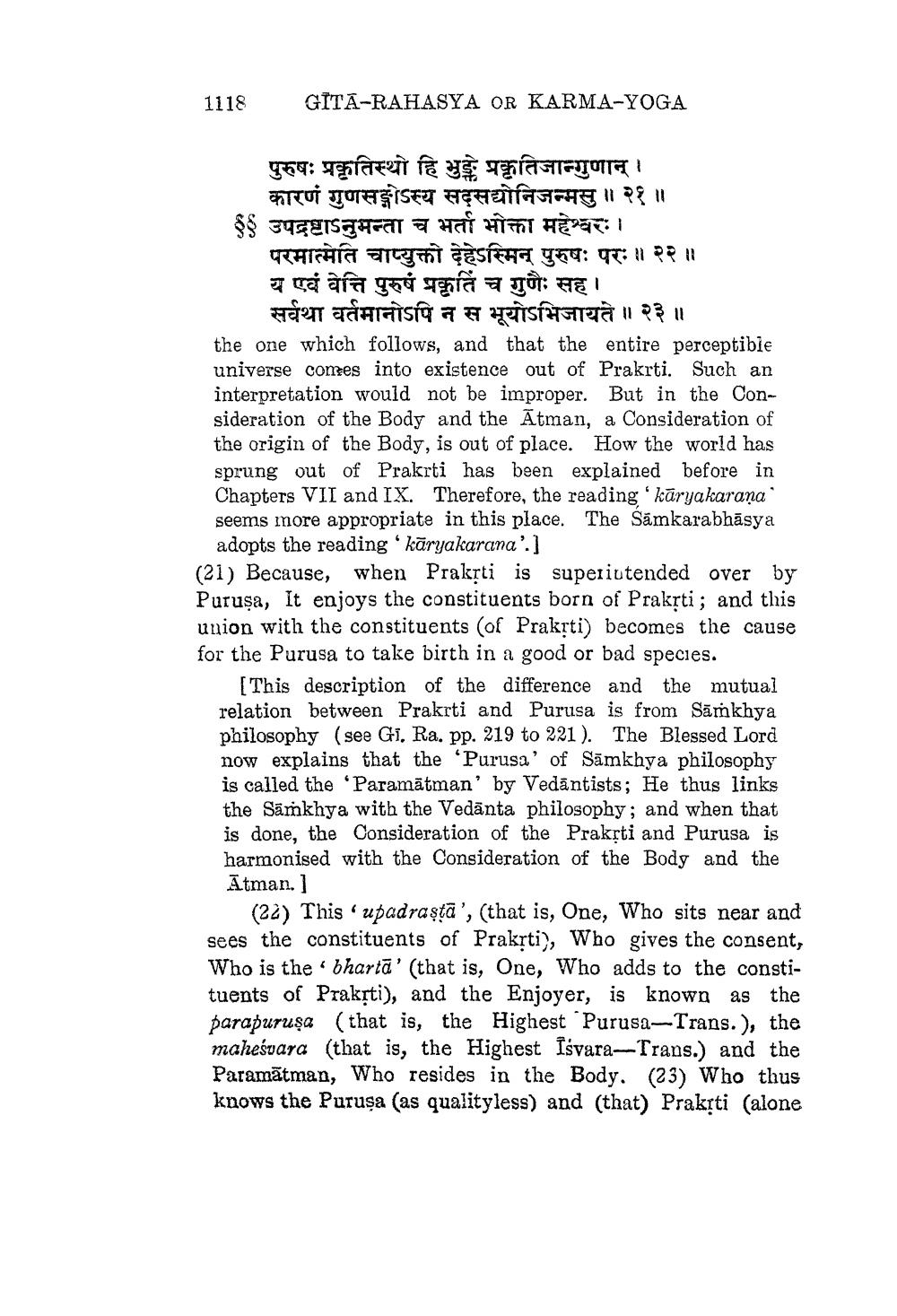________________
1118
GITA-RAHASYA OR KARMA-YOGA
पुरुषः प्रकृतिस्थो हि भुङ्के प्रकृतिजान्गुणान् ।
कारणं गुणसङ्गोऽस्य सदसद्योनिजन्मसु ॥ २१ ॥ $$ उपद्रष्टाऽनुमन्ता च भर्ता भोक्ता महेश्वरः।
परमात्मेति चाप्युक्तो देहेऽस्मिन् पुरुषः परः ॥२२॥ य एवं वेत्ति पुरुषं प्रकृतिं च गुणैः सह ।
सर्वथा वर्तमानोऽपि न स भूयोऽभिजायते ॥ २३ ॥ the one which follows, and that the entire perceptible universe comes into existence out of Prakrti. Such an interpretation would not be improper. But in the Consideration of the Body and the Ātman, a Consideration of the origin of the Body, is out of place. How the world has sprung out of Prakrti has been explained before in Chapters VII and IX. Therefore, the reading 'karyakarana seems more appropriate in this place. The Sāmkarabhāsya
adopts the reading 'käryakarana'.] (21) Because, when Praksti is superiutended over by Puruşa, It enjoys the constituents born of Prakrti; and this union with the constituents of Prakrti) becomes the cause for the Purusa to take birth in a good or bad species.
[This description of the difference and the mutual relation between Prakrti and Purusa is from Sāmkhya philosophy (see Gi. Ra. pp. 219 to 221 ). The Blessed Lord now explains that the 'Purusa' of Sāmkhya philosophy is called the 'Paramātman' by Vedāntists; He thus links the Samkhya with the Vedānta philosophy; and when that is done, the Consideration of the Prakrti and Purusa is harmonised with the Consideration of the Body and the Atman. ]
(22) This' upadrastā ', (that is, One, Who sits near and sees the constituents of Prakrti), Who gives the consent, Who is the bhartā' (that is, One, Who adds to the constituents of Prakrti), and the Enjoyer, is known as the parapuruşa (that is, the Highest Purusa-Trans. ), the maheśvara (that is, the Highest Išvara-Trans.) and the Paramātman, Who resides in the Body. (23) Who thus knows the Purusa (as qualityless) and (that) Prakrti (alone




